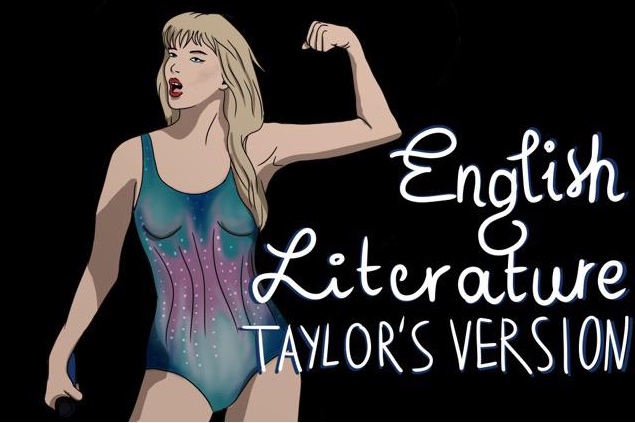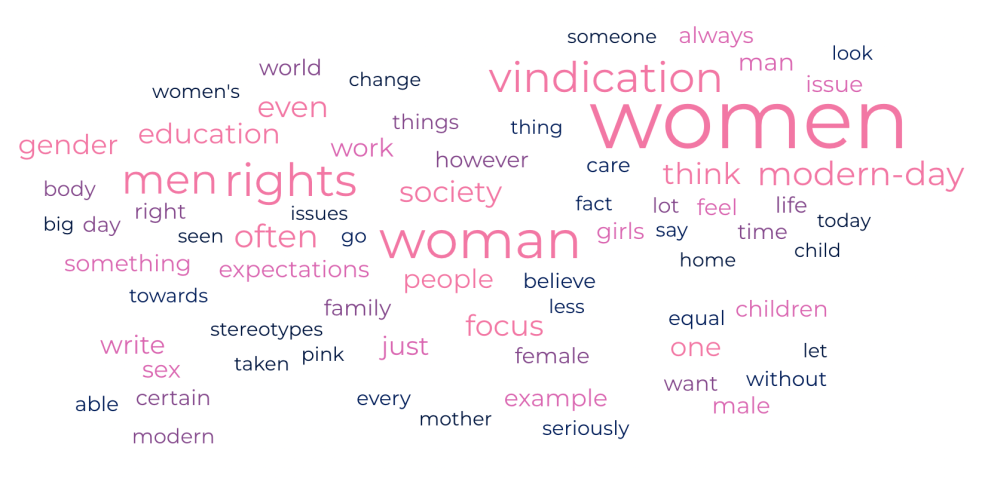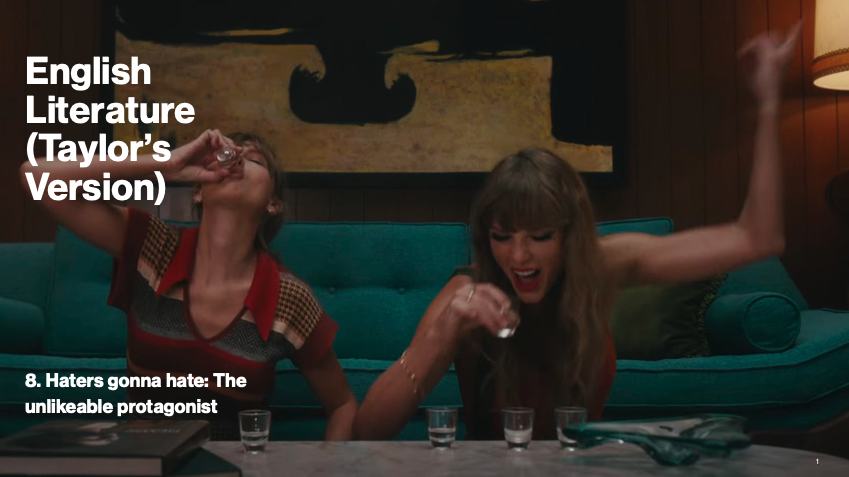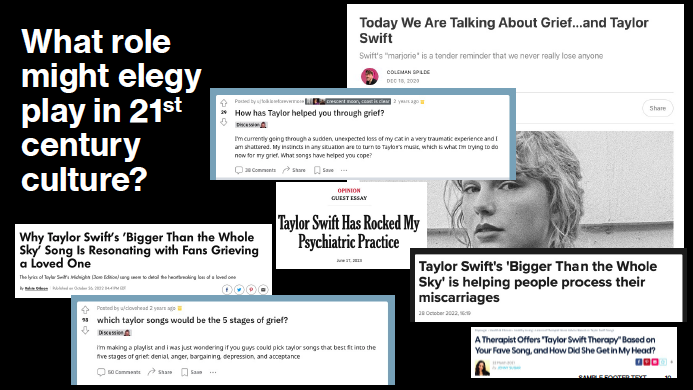You can find countless articles online – and a few books by now, too – listing all the literary allusions in Taylor Swift’s work, many of which I've also documented on this blog. Beyond suggesting that Swift is familiar with some English literary classics, though, these lists don’t really tell us much at all. When… Continue reading Swifterature: the book. Coming 4 November
Tag: teaching
What’s it like to study English Literature (Taylor’s Version)?
For an answer to that question, please enjoy this incredible graphic novel by two of my ridiculously talented students! Thank you Chiara and Anaya. Click above image to read more!
Why do we need feminism? Thoughts from English Literature (Taylor’s Version)
As part of our session on feminism, writing and power, we looked at Mary Wollstonecraft's seminal 'Vindication of the Rights of Woman', a 1792 treatise that argued for the importance of women's education during a period where it was habitually denied. Expected to be little more than delicate parlour ornaments, women were not seen as worthy recipients of the kind of education offered to men - a state of affairs which Wollstonecraft laments, while pointing out its idiocy (surely men would prefer a wife with whom they can hold a conversation). As a thought experiment, I asked my students: 'If you could write a modern-day "Vindication of the Rights of Woman", what feminist - or gender-related - issue would you focus on, and why?' Here are some of the responses - you can also see a word cloud of the most frequently used terms above. Click on it to read more.
English Literature (Taylor’s Version): Monopoly
In the coming weeks and months, I'll be sharing the results of my students' 'reflection reports': a creative assignment in any format they wished, that reflected on one or more aspects of English Literature (Taylor's Version). To kick off, please enjoy this absolutely incredible Taylorfied version of monopoly. The board itself is fantastic, but even better are the Chance and Community Chest cards, which are packed full of witty references to all the books and poems we covered during the course. [Click above image to see more].
English Literature (Taylor’s Version): Seminar 9
I had been looking forward to teaching this class for months. In some ways, it's the class that started it all: my concrete idea for English Literature (Taylor's Version) took shape when listening to 'The Great War' for the first time back in 2022, and noticing parallels with Sylvia Plath's poem 'Daddy' (you can read more about that here). It eventually grew into something bigger: a seminar that paired trauma studies with discussion of art as therapy, the connections between literature, love and war, and close reading of Geoffrey Chaucer's Troilus and Criseyde, John Donne's 'Love's War' and, of course, Plath's 'Daddy'. We also discussed Holocaust literature, the disturbing trend for '...of Auschwitz' titles in modern publishing, and what it means to use art to talk about trauma. It was, perhaps, the most meaningful seminar of all those I've taught, and sparked perhaps the most important conversations. [Click above image to read more]
Speak now? Aviation, activism and accountability
The other day, I received an email. It went straight into the special folder of my inbox where any emails containing the keyword ‘Swift’ are automatically programmed to go; this is my desperate attempt to try and maintain some compartmentalisation of my professional life, since I do actually also have to maintain a normal full-time workload on top of repeatedly telling the media why All Too Well (10 minute version) is a masterpiece (which, don’t get me wrong, I love to do, because it is).
English Literature (Taylor’s Version): Seminar 8
In Seminar 8 of English Literature (Taylor's Version), titled 'Haters Gonna Hate: The Unlikeable Protagonist', we looked at the antihero, or deliberately unlikeable protagonist, in literature and culture. We tried to answer the question: what does it mean for Swift to self-identify as an antihero, in the twenty-first century? In order to do this, we looked at groundbreaking incarnations of the antihero in William Makepeace Thackeray’s Vanity Fair (1848) - subtitled 'A novel without a hero' - and Charlotte Bronte’s Villette (1853). [Click above image to read more]
English Literature (Taylor’s Version) in numbers
What a semester it's been! Click above the image for more vital stats from our English Literature (Taylor's Version) classroom.
English Literature (Taylor’s Version): Seminar 5
In seminar 5, we explored the relationship between Swift's music ('Soon You'll Get Better'; 'Ronan'; 'Marjorie'; 'You're Losing Me'; 'Bigger Than the Whole Sky') and elegy, a capacious term that usually connotes a song or poem about death or bereavement, the tradition for which originated in ancient Greece. We looked at three very different examples of elegies: the anonymous 'The Wanderer', from the tenth century (originally written in Old English); Thomas Gray's 'Elegy Written in a Country Churchyard' from the eighteenth century; and Christina Rossetti's 'A Dirge' (nineteenth century). Focusing on these poems, we explored the relationship between language, memory and emotion. Later, we asked what role elegy might play in twenty-first-century culture, and looked at some of the fan responses to Swift's elegies, speculating that these might help to remove some of the taboos surrounding grief, death and bereavement and enable people to articulate their emotions in a cathartic and restorative way. [Click above image for notes]
English Literature (Taylor’s Version): Seminar 4
In Seminar 4 of English Literature (Taylor's Version), we looked at the relationship between writing, gender and power, asking what Taylor Swift can teach us about literary feminism. We listened to 'Right Where You Left Me', 'Dear John', 'Mad Woman', 'Hits Different' and 'The Man', asking: What construction(s) of femininity do we see in the song? What is the relationship between writing and power? Are there any literary allusions? Is this a 'feminist' song? if so, why? If not, why not? We used this discussion - also bringing in Swift's re-recording of her masters, seen by many as a feminist act - to segue into two important feminist literary texts: Mary Wollstonecraft's 'Vindication of the Rights of Woman' (1792) and Charlotte Perkins Gilman's The Yellow Wallpaper (1892). [Click above image to read more]










